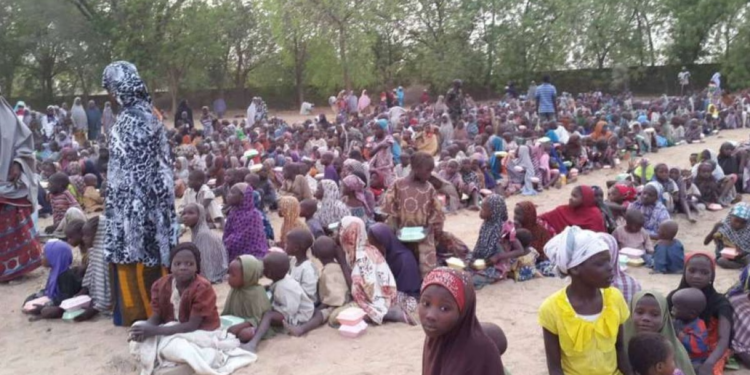The Commissioner for Humanitarian Affairs and Poverty Alleviation in Niger State, Ahmad Suleiman Yumu has revealed that a total of 11,113 school-aged children have been forced to abandon their education, and approximately 400 primary schools have been forced to shut down due to the prevalence of these kidnapping and banditry activities within the state.
Yumu made these revelations during an event where Dr. Betta Edu, the Minister of Humanitarian Affairs and Poverty Alleviation, officially initiated the distribution of relief materials and grinding engines to Internally Displaced Persons (IDPs) residing in the Gwada camp, located in the Shiroro Local Government Area.
This distribution was part of the National Social Investment Programme aimed at assisting those affected by the crisis.
Banditry disrupting farming activities
Furthermore, Yumu emphasized that the persistent challenges of banditry and kidnappings had disrupted farming activities in Niger State.
This disruption led to the displacement of 29,774 farmers, comprising 7,650 women and 3,201 men. Moreover, over the last eight years, 11,113 children have been unable to attend school, including 108 individuals with special needs.
The Commissioner highlighted the alarming scale of farmer displacement, which has placed a substantial burden on the government in terms of providing relief to the victims.
He also noted that the state government had already taken steps to distribute palliative support to those affected by banditry in various areas, including Munya, Mariga, Mashegu, and Rijau.
In addition to these relief efforts, the government has been implementing both kinetic and non-kinetic approaches to restore peace in the affected communities.
FG to collaborate with state governments
Addressing the gathering, Minister Dr. Betta Edu expressed the commitment of the federal government to collaborate closely with the state government to address the pressing issues at hand.
She underscored the importance of facilitating the return of out-of-school children to the education system and the empowerment of their parents to enable them to lead better lives.
Dr. Edu further emphasized the urgent need for interventions that include providing suitable shelter, ensuring access to quality education, and empowering the parents of the victims to rebuild their lives.




